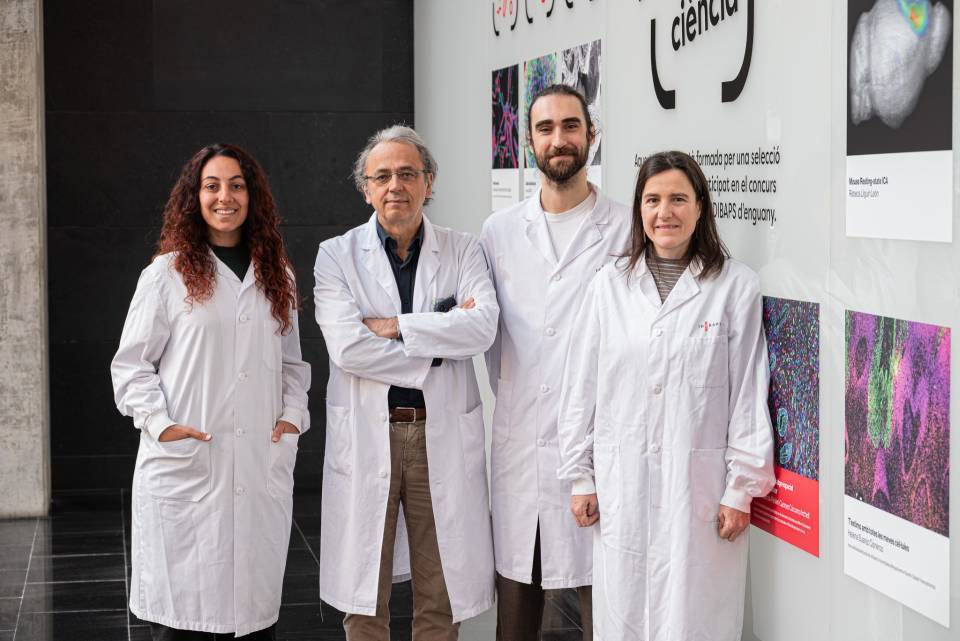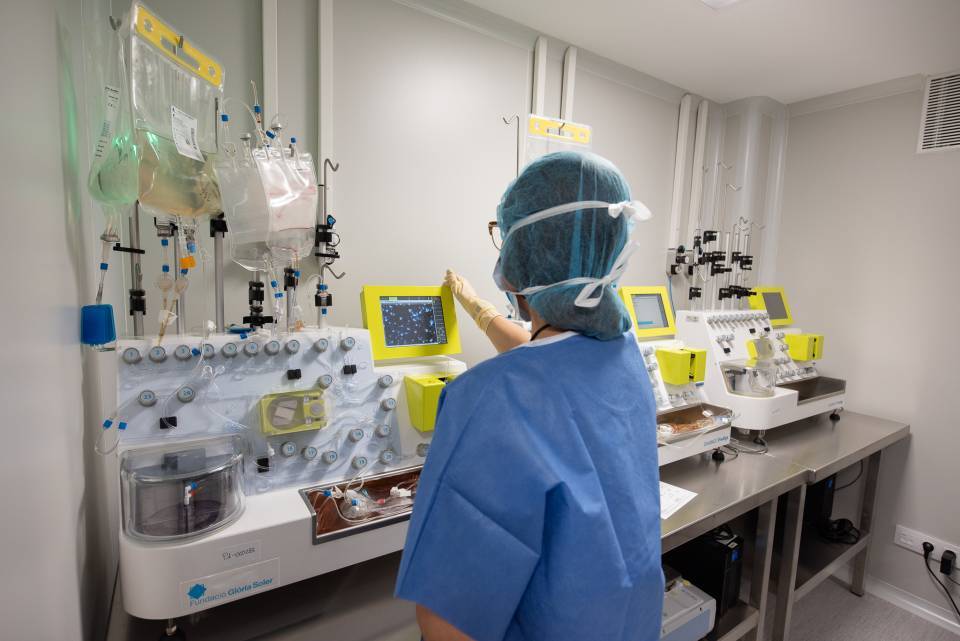- What is it?
-
The procedure at Hospital Clínic
What is Radiotherapy?
Radiotherapy is a medical oncology treatment that uses high-energy ionizing radiation to eliminate tumor cells or slow their growth.
It is a key tool in cancer treatment, and thanks to technological advances, it has become safe, precise, and highly effective. It can be used alone or in combination with other treatments such as surgery, chemotherapy, or immunotherapy.
Around 60% of cancer patients receive radiation therapy at some point in their cancer treatment. It may be indicated in different situations:
- Curative treatment: to completely eliminate the tumor.
- Before surgery (neoadjuvant): to reduce the size of the tumor and facilitate its removal.
- After surgery (adjuvant): to eliminate possible residual cells and reduce the risk of relapse.
- Palliative treatment: to relieve symptoms such as pain, bleeding, or compression of neighboring structures, improving quality of life.
Gracias al avance en el conocimiento clínico y a la evolución tecnológica, hoy contamos con técnicas cada vez más precisas, individualizadas y adaptadas a cada paciente y tipo de tumor.
- Se realiza con tecnología de última generación, que permite dirigir la radiación de forma muy precisa, adaptándose a la forma y localización del tumor.
- Los tejidos sanos se protegen al máximo, minimizando los efectos secundarios.
- La mayoría de los tratamientos se hacen de forma ambulatoria, sin necesidad de ingreso hospitalario.
- Es un tratamiento indoloro, rápido y cómodo para el paciente.
The therapy is administered in outpatient sessions at a treatment centre or hospital in special rooms known as ‘radiotherapy rooms’ or ‘bunkers’. This is where the radiotherapy machines (linear accelerators) are located, and they have special walls that provide perfect insulation to prevent radiation from escaping.
The duration of treatment varies depending on the type of tumor, location, and the goal of treatment. For this reason, not all people receive the same number of sessions.
In some cases, a single high-precision session (known as stereotactic radiotherapy) or a short course of a few sessions (between one and ten) may be administered, although radiotherapy is most commonly administered over several weeks, usually from Monday to Friday. In these cases, the total number of sessions can range from 15 to 35, depending on the individualized treatment plan.
The radiation oncologist informs his patients of the expected number of sessions and their distribution throughout the treatment.
- Follow the team's instructions on hygiene, hydration and skin care.
- Consult for any new symptoms or physical changes.
- Avoid looking for unverified information on the internet. The team of professionals is here to help.
- Attend scheduled medical and nursing visits.
Throughout the process, the patient is accompanied by a multidisciplinary team:
- Radiation oncologist: directs treatment.
- Hospital radiophysicist: guarantees the quality and safety of the procedure.
- Radiotherapy technicians: perform the CT scan, perform dosimetry (preparation of the treatment plan) and administer the sessions.
- Specialized nursing: they monitor and treat possible side effects.
- Administrative staff: manage the scheduling of appointments, facilitate coordination with the care team and help with any logistical procedures related to treatment.
Radiation is not seen, heard, or noticed. Coloured lights may be seen directed towards the marks on the skin. These lights are harmless, and are used to aid positioning during treatment.
Radiotherapy works by killing tumour cells, but it can also temporarily affect healthy tissues near the treated area. Because of this, some people may experience side effects during treatment.
Not all patients have side effects, and in most cases they are mild and transient. These effects do not occur in the same way, as they depend on several factors: the area of the body that is irradiated, the dose of radiation administered, the number of sessions and the individual characteristics of each person.
From day one, the patient is explained what changes they may notice and how they should take care of themselves during treatment. The most common are:
- Tiredness (asthenia): It is common to feel more tired than usual. It may be due to the treatment itself, other combination treatments or the daily commute to the hospital. It is important to rest when the body asks for it.
- Skin reactions: Changes similar to a mild sunburn (redness, itching, or tenderness) may appear in the treated area. They usually appear 2-3 weeks after starting treatment and gradually disappear after treatment.
Substantiated information by:

Published: 14 July 2021
Updated: 7 August 2025
Subscribe
Receive the latest updates related to this content.
(*) Mandatory fields
Thank you for subscribing!
If this is the first time you subscribe you will receive a confirmation email, check your inbox


